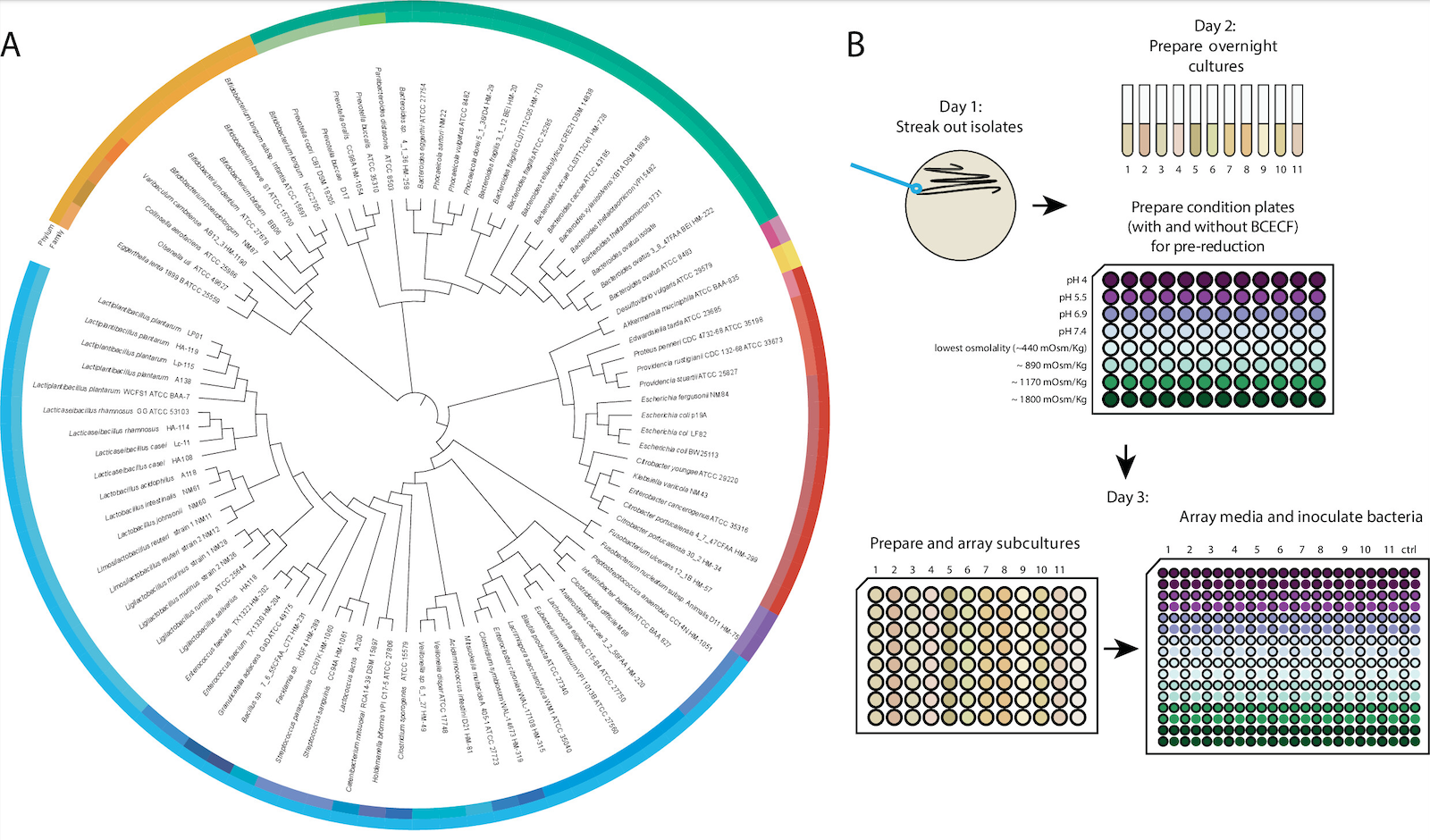
Publication: Single-strain behavior predicts responses to environmental pH and osmolality in the gut microbiota
Abstract: Changes to gut environmental factors such as pH and osmolality due to disease or drugs correlate with major shifts in microbiome composition; however, we currently cannot predict which species can tolerate such changes or how the community will be affected. Here, we assessed the growth of 92 representative human gut bacterial strains spanning 28 families across multiple pH values and osmolalities in vitro. The ability to grow in extreme pH or osmolality conditions correlated with the availability of known stress response genes in many cases, but not all, indicating that novel pathways may participate in protecting against acid or osmotic stresses. Machine learning analysis uncovered genes or subsystems that are predictive of differential tolerance in either acid or osmotic stress. For osmotic stress, we corroborated the increased abundance of these genes in vivo during osmotic perturbation. The growth of specific taxa in limiting conditions in isolation in vitro correlated with survival in complex communities in vitro and in an in vivo mouse model of diet-induced intestinal acidification. Our data show that in vitro stress tolerance results are generalizable and that physical parameters may supersede interspecies interactions in determining the relative abundance of community members. This study provides insight into the ability of the microbiota to respond to common perturbations that may be encountered in the gut and provides a list of genes that correlate with increased ability to survive in these conditions.

